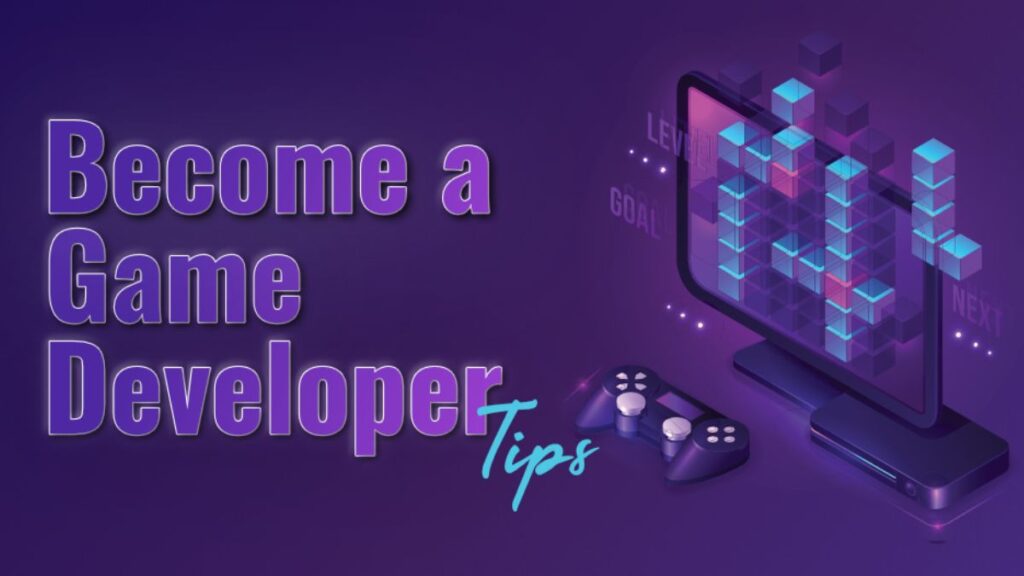Game development has transformed from a niche hobby into a booming industry valued at hundreds of billions of dollars. From indie developers crafting heartfelt stories to AAA studios creating blockbuster franchises, the world of game development is rich with opportunity, creativity, and innovation. But breaking into this field can feel overwhelming, especially for newcomers who aren’t sure where to start. Whether you’re a student, a self-taught coder, or someone making a career shift, this guide will help you navigate the essential steps to start a career in game development.
Understanding What Game Development Really Is
Before diving into the technicalities, it’s important to understand what game development encompasses. Game development refers to the process of designing, creating, testing, and releasing video games. It involves multiple disciplines including programming, game design, visual arts, sound design, and project management. Each of these elements plays a vital role in turning an idea into an interactive digital experience.
Contrary to what some might think, game development isn’t just about writing code. While programming is a core skill, other creative areas are equally essential. Artists create the visual assets, animators breathe life into characters, designers build the gameplay mechanics, and writers craft the narrative. Knowing the different roles in a game development team can help you identify where your passion and skills lie, which is the first step toward building a fulfilling career.
Choose Your Path: Specializations in Game Development
Game development offers a wide array of career paths. Here are a few common roles:
- Game Programmer: Responsible for writing the code that powers the game. Languages like C++, C#, and Python are commonly used.
- Game Designer: Focuses on gameplay mechanics, level design, and user experience. Designers are essentially the architects of the player’s journey.
- Game Artist: Creates 2D or 3D assets including characters, environments, and animations. Tools like Blender, Photoshop, and Maya are frequently used.
- Sound Designer: Develops the audio elements including music, sound effects, and voice acting.
- QA Tester: Ensures the game functions correctly, identifying bugs and inconsistencies.
- Producer/Project Manager: Coordinates the development process, timelines, and communication across departments.
Each of these roles requires a unique set of skills and tools. Early in your journey, it’s wise to explore different aspects of game development before choosing a specialization. Online tutorials, YouTube channels, and beginner courses can give you a taste of each discipline.
Educational Paths: Formal vs. Self-Taught
There are two main ways to gain knowledge and skills in game development: formal education and self-directed learning. Both routes are valid, and the choice depends largely on your learning style, time, and resources.
Formal Education: Many universities and colleges now offer specialized degrees in game development, computer science, or digital media. These programs provide structured learning, access to industry-standard tools, and opportunities for networking. A formal education is especially beneficial for those who thrive in a classroom environment and want a comprehensive foundation.
Self-Taught Route: Thanks to the internet, aspiring developers can now learn game development from the comfort of their homes. Platforms like Coursera, Udemy, Unity Learn, and free resources such as GitHub and Reddit communities are invaluable. This approach requires discipline and motivation, but it allows you to learn at your own pace and often at a fraction of the cost.
Hybrid approaches are also common. Many successful developers combine formal education with self-learning to stay current with the latest tools and techniques.
Mastering the Tools of the Trade
Regardless of your chosen path, proficiency with the right tools is crucial in game development. Here are some industry-standard software platforms to get familiar with:
- Unity: One of the most popular game engines, great for 2D and 3D games. Uses C# for scripting.
- Unreal Engine: Known for high-end 3D graphics and commonly used for AAA titles. Uses C++ and Blueprints (visual scripting).
- Godot: A rising open-source engine that’s beginner-friendly and lightweight, using its own scripting language, GDScript.
- Blender: A powerful free tool for 3D modeling, animation, and texturing.
- Photoshop or GIMP: Essential for creating 2D textures and assets.
Start by choosing one engine and sticking with it for a few projects. The learning curve can be steep, but consistency will help you become proficient faster. Most engines come with comprehensive documentation, tutorials, and active communities willing to help beginners.
Build a Portfolio of Projects
In the game development industry, your portfolio often matters more than your resume. Employers and collaborators want to see what you can do, not just what you say you can do. That means creating playable projects, even small ones, that showcase your abilities.
Start with simple games—a platformer, a puzzle game, or a clone of a classic game like Pong or Breakout. These projects don’t need to be groundbreaking, but they should be functional, polished, and complete. Use each one as a learning experience, iterating on your mistakes and improving with each project.
Once you’ve built a few games, publish them online. Websites like itch.io and Game Jolt allow indie developers to share their work, get feedback, and build an audience. Posting your projects on GitHub also demonstrates your code quality and collaboration skills.
Join the Game Dev Community
The game development community is large, diverse, and incredibly supportive. Whether you’re looking for feedback, collaboration, or just a bit of motivation, joining a community can accelerate your learning and keep you engaged.
Participate in game jams—time-constrained challenges where developers create games based on a theme. Ludum Dare, Global Game Jam, and itch.io-hosted jams are popular events where you can meet other developers and hone your skills under pressure.
Join forums like r/gamedev on Reddit, Discord servers, and Facebook groups. Follow industry veterans and indie devs on Twitter/X and YouTube. These platforms are goldmines for advice, inspiration, and job leads.
Seek Internships and Entry-Level Jobs
Once you’ve gained some experience and built a solid portfolio, it’s time to enter the job market. Look for internships, junior roles, or QA tester positions in game studios. While these may not be glamorous at first, they’re crucial stepping stones that provide real-world experience.
Customize your application for each job. Highlight your most relevant projects, explain your role in team-based work, and include links to playable demos. A well-documented GitHub repository, clear UI screenshots, and a concise cover letter can make you stand out.
Don’t be discouraged by rejection. Game development is highly competitive, and persistence is key. Keep refining your skills, growing your portfolio, and applying to roles that align with your strengths and goals.
Stay Current and Keep Learning
The game development landscape evolves rapidly. New engines, programming languages, trends, and player expectations mean that developers must be lifelong learners. Follow game industry news, attend conferences like GDC (Game Developers Conference), and take advanced courses to stay ahead.
Keep exploring emerging areas like VR/AR, AI in games, and procedural generation. These skills are increasingly in demand and can set you apart from other candidates.
Final Thoughts: Turning Passion Into Profession
Starting a career in game development is not an overnight journey—it requires dedication, patience, and a love for both games and the creative process. But it is also one of the most rewarding fields, allowing you to turn your ideas into experiences that bring joy to millions of players around the world.
If you’re passionate about games, eager to learn, and ready to put in the effort, there’s never been a better time to start. Choose your path, learn the tools, build your portfolio, and step into the exciting world of game development.



